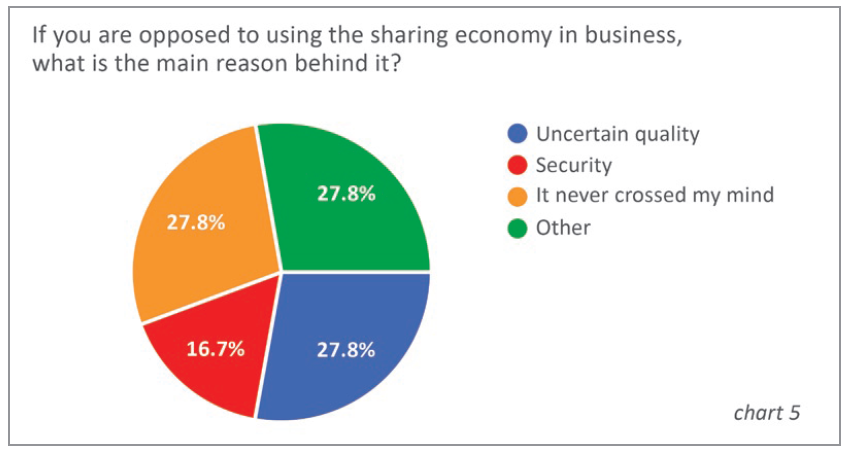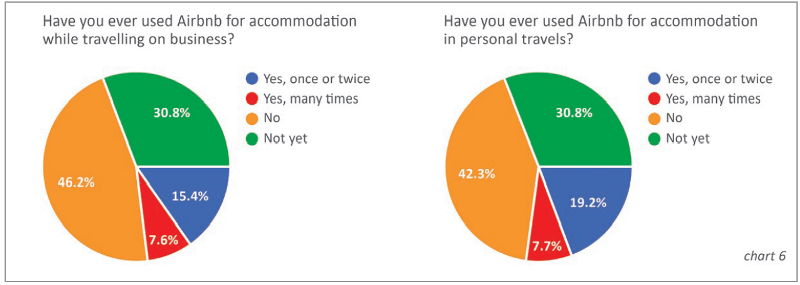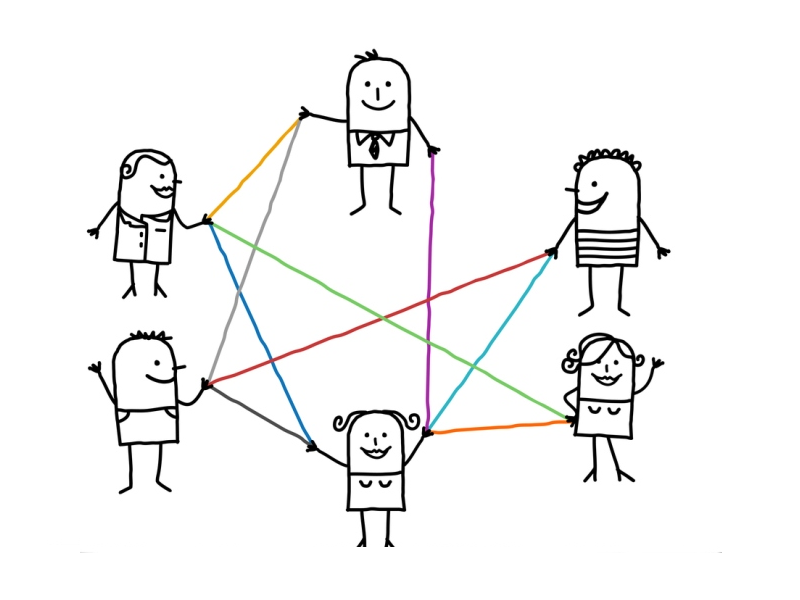Although the concept is not a novel one, last few years saw much talk about the sharing economy. Here sharing or renting replace buying (accommodation, equipment, devices, transportation, and the like) for the purpose of cutting costs. Companies such as Airbnb, Uber, SnapGoods, and others are actually pioneers of the concept.
PwC predicts that by 2025 the global Sharing Economy will be worth $335 billion. The UK is considered to be the European capital of the sharing economy, accounting for 1 in 10 of the companies in this sector, and as Ipsos Mori found, 18.5 million UK residents regularly use apps and websites in the Sharing Economy.
In this issue of SEEbtm, we investigate how much is the sharing economy involved in event planning in SEE region. The survey included professionals in the MICE industry – coming from hotels, agencies, convention bureaus, companies, non-governmental organizations, and ministries – mostly working in Serbia and Croatia.
The responses given by the survey participants indicate that attention is paid to the cost of employees coming to work (60%), including also those who sometimes use the concept of sharing transport means (32%), as well as those who do that all the time (28%) (chart 1).

The same concept is used even more when planning an event, as much as in 67% of cases.
Most often, attendees are provided with shared transport, and if cars are used, they share means of transport, making sure that no seats are wasted instead of people going by themselves, except of course when organization requires otherwise (for lecturers, VIP guests, etc.).
What is important and interesting to note is that the majority of international congresses, on their web sites, now on the page How to get there or Transportation, in addition to the standard options of public transport and plane, includes the possibility of car sharing with some other participant of the Congress.
When it comes to sharing equipment (chart 2), local event planners don’t make it a habit. Namely, 64% of them didn’t or at least not yet shared equipment at their events. This has been done several times so far by 20% of the survey participants, while 16% of them already do it on regular basis.

Sharing event decorations is even more inconvenient in practice (chart 3), although the percentage of those who have managed to apply this concept and save both time and money this way is not insignificant (29.2%).
As for sharing supplies like furniture or, for example, chairs or barstools needed for larger events (which happens frequently), the case is different – as much as 45% find solutions to this issue through good collaboration or borrowing equipment from associates or colleagues (chart 4).
Another instance of applying the smart concept of sharing in event planning noted by the respondents is collaborating with local communities and tourism organizations.
Of course, in this area, the focus is mainly on sharing resources (services, education, venues, or transportation), when activities are synergic and benefit both parties, without the competitive element.

When organizing events that address similar issues, non-governmental organizations, for example, try to involve other organizations that share their values, and therefore also resources (venue, skills, etc.).
As for the global hype for Airbnb accommodation services, here – among the professionals in the MICE industry – the trend is far from widespread but also not negligible.
However, only 7.6% use the service frequently, while 77% haven’t or not yet used Airbnb’s services for business travel (chart 6).
There’s a slight difference between business and personal travels. When it comes to personal travel, Airbnb services are somewhat more common – they’re used in 26.9% of cases compared with 23% when travelling on business.

As reported by the survey participants, the main issue in applying the sharing economy in business is uncertain quality (27.8% of respondents), as well as the subject of security (16.7%) (chart 5).
We could also say that the number of those not familiar with the concept is considerable, as 27.8% of the participants responded that the approach never crossed their mind.
It is safe to say that sharing economy found its place in event planning primarily in the sphere of equipment sharing – furniture, such as conference chairs, bar tables, etc.
This is partially due to the lowest risk upon using and possible damage. Technical equipment and decoration sharing is still timidly used, but we can expect its growth, once these practices get more elaborated.
For example, decorators and people from the technical sector may offer the option of sharing with other planners, with suitable types of decoration and equipment.

Meanwhile, economic and environmental awareness on vehicle sharing is, surely, yet to grow.
So in the future, majority of companies will have established transportation sharing routines, whilst when business trips and transportation for events are in question, we can positively say that they already have established routines.
Maybe the number of those who have individual transportation organized just for them in cases which are not high priority, will decrease.
This is more connected to the local and social legacy of events, but in the future, the awareness on the food left over after events is to be, and will be, raised. There should be a predefined plan on donation of the food left from lunches, gala dinners, etc.
Normally, we are talking about dozens of kilos of food.

As far as Airbnb accommodation is concerned, for now, their services are not widely used in this region, especially not for corporate travels, so there is still no fear that this platform will have some greater influence on the hotels in the region.
Yet, this trend shook up the global hotel industry therefore we recommend to carefully monitor the movement of this trend.







































 Srpski
Srpski English
English